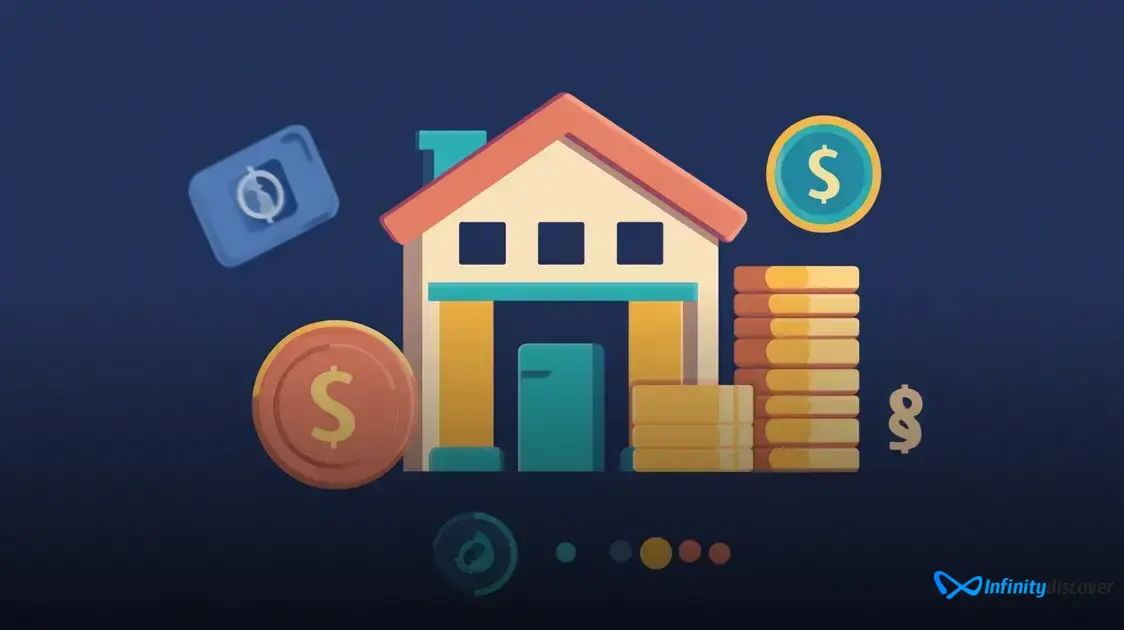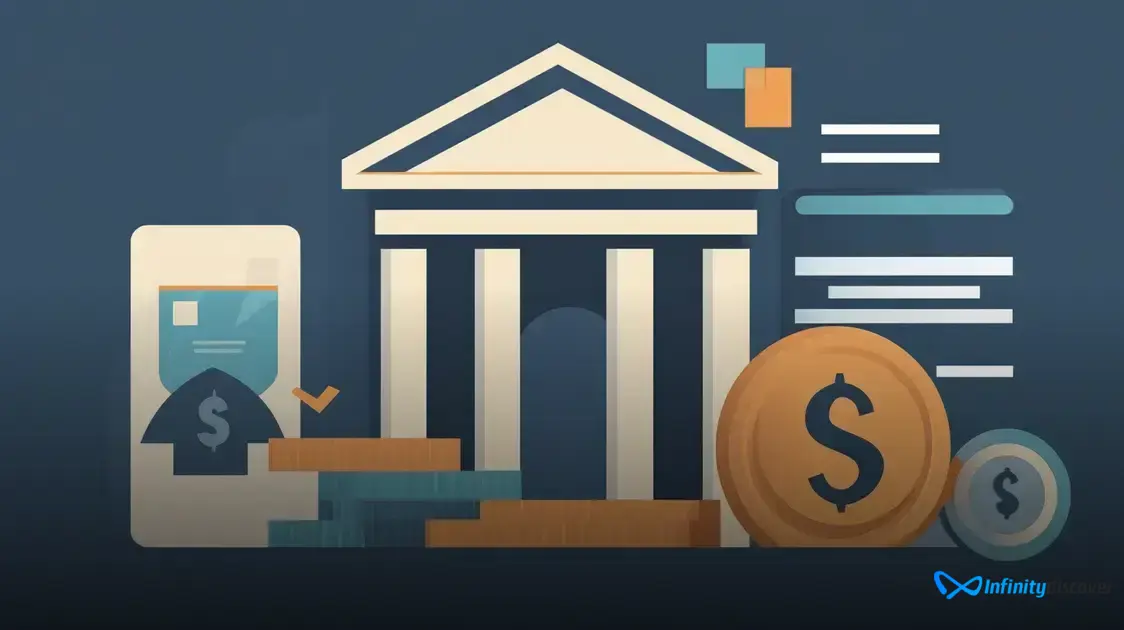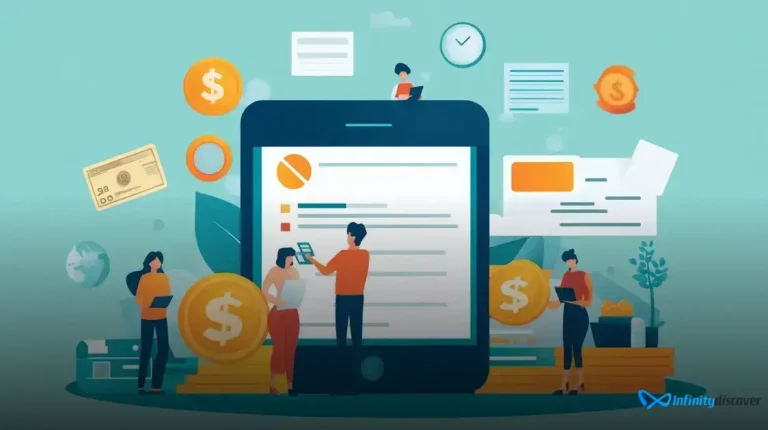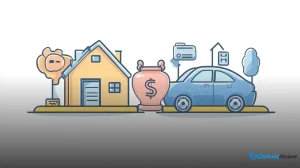Searching for the best borrowing option? Understanding secured vs unsecured loans is crucial for making informed financial decisions.
Each type has distinct features, benefits, and risks that can impact your financial journey.
Understanding Secured Loans
Secured loans are financial products that require borrowers to put up an asset, known as collateral, to secure the loan.
Common types of collateral include real estate, vehicles, or savings accounts. If the borrower fails to repay the loan, the lender has the right to reclaim the collateral.
This makes secured loans generally less risky for lenders.
Types of Secured Loans
Some common types of secured loans are:
- Home Equity Loans: These loans allow homeowners to borrow against the equity built up in their homes. They typically have lower interest rates because the home acts as collateral.
- Auto Loans: When you take a loan to buy a car, the vehicle itself is the collateral. If you miss payments, the lender can repossess the car.
- Secured Personal Loans: These loans are backed by a savings account or other asset. They can have lower interest rates compared to unsecured personal loans because of the reduced risk for the lender.
Advantages of Secured Loans
Secured loans often come with lower interest rates and higher borrowing limits because the collateral reduces the lender’s risk.
They can also be easier to qualify for if you have a less-than-perfect credit history.
Because the stakes are higher for the borrower, paying off a secured loan can also help improve your credit score.
How to Obtain a Secured Loan
To obtain a secured loan, you usually need to:
- Determine the type of collateral you will use.
- Shop around for the best rates and terms from different lenders.
- Provide documentation related to your income, credit score, and the asset you are securing.
Once approved, the lender will hold onto the collateral until the loan is fully paid off. Make sure to understand all terms before signing any agreement.
Understanding Unsecured Loans
Unsecured loans are financial products that do not require collateral to secure the loan.
Because these loans do not have an asset backing them, they often come with higher interest rates compared to secured loans.
Lenders evaluate the borrower’s creditworthiness, income, and financial history to determine whether to approve the loan.
Types of Unsecured Loans
Common types of unsecured loans include:
- Personal Loans: These loans can be used for various purposes like debt consolidation, home improvement, or unexpected expenses. They typically have fixed terms.
- Credit Cards: A form of revolving unsecured debt, credit cards allow consumers to borrow up to a certain limit for purchases.
- Student Loans: Often offered by the government or private lenders, these loans help cover education costs without requiring collateral.
Advantages of Unsecured Loans
One of the primary benefits of unsecured loans is that borrowers do not risk losing any assets if they cannot repay the loan.
Additionally, they can be easier and faster to obtain since there’s no need to appraise collateral.
Unsecured loans can also help build credit when payments are made on time.
How to Obtain an Unsecured Loan
To apply for an unsecured loan, you usually need to:
- Check your credit score, as good credit is often necessary for approval.
- Compare various lenders to find the best interest rates and terms.
- Prepare financial documents that prove your income and employment.
Once approved, the loan amount will be disbursed to you, and you will repay it in monthly installments over an agreed time frame.
Benefits of Secured Loans

Secured loans come with several advantages that make them an appealing option for many borrowers.
One of the main benefits is the lower interest rates.
Since these loans are backed by collateral, lenders offer more favorable rates compared to unsecured loans.
This can save borrowers a significant amount of money over the life of the loan.
Higher Borrowing Limits
Another benefit of secured loans is the potential for higher borrowing limits.
Lenders are more willing to provide larger amounts of money when there is collateral involved, which can be beneficial for major purchases, home renovations, or other significant expenses.
Easier Approval Process
Secured loans can be easier to obtain, especially for individuals with less-than-perfect credit.
Since the lender has a form of security, they may overlook some credit issues that could hinder the approval process for unsecured loans.
Improved Credit Score
Timely payments on secured loans can also help improve your credit score.
By consistently making payments, you show lenders that you are a responsible borrower.
This can help you qualify for better rates on future loans.
Flexible Repayment Options
Many lenders offer flexible repayment options for secured loans.
Depending on the lender and the type of collateral, borrowers may be able to choose from various terms that best fit their financial situation.
Potential Tax Benefits
In some cases, the interest paid on secured loans may even be tax-deductible, particularly for home equity loans.
Borrowers should consult a tax professional to explore potential tax advantages associated with secured loans.
Benefits of Unsecured Loans
Unsecured loans offer several distinct advantages that make them a popular choice among borrowers.
One of the primary benefits is the lack of collateral requirement.
This means you don’t have to risk personal assets, like your home or car, when taking out the loan.
This feature makes unsecured loans appealing for those who want to avoid putting their belongings on the line.
Quick Approval Process
Because there is no need for collateral, unsecured loans often come with a quicker approval process.
Lenders focus mainly on your creditworthiness and income, which means you can receive funds faster than secured loans require.
Flexibility in Use
Unsecured loans provide greater flexibility for how borrowed funds can be utilized.
Whether you want to finance a vacation, consolidate debt, or cover unexpected expenses, you can use the funds as you see fit without restrictions imposed by the lender.
Improved Credit Score
Making timely payments on an unsecured loan can positively impact your credit score.
When you demonstrate reliable payment behavior, it signals to lenders that you are a responsible borrower, which can lead to more favorable borrowing terms in the future.
Lower Starting Costs
Unsecured loans often have lower starting costs compared to secured loans.
There are typically no appraisal fees or closing costs involved, making them easier to manage financially at the outset.
Diverse Options Available
There are a variety of unsecured loans available, such as personal loans, credit cards, and student loans.
This diversity allows borrowers to find a loan that best meets their needs and financial situation, enhancing accessibility to funds.
Risks Involved in Secured Loans
While secured loans offer many benefits, they also come with significant risks that borrowers should be aware of before taking one out.
The most serious risk is the potential loss of collateral.
If you fail to make the required payments, the lender can seize the asset you used as collateral, which may include your home, car, or savings.
Property Loss
Defaulting on a secured loan leads to the loss of your collateral property, which can have devastating financial and emotional consequences.
For example, losing your home to foreclosure can disrupt your life and create long-lasting financial challenges.
Higher Debt Risks
Taking a secured loan can lead to a spiral of debt if not managed carefully.
If you borrow more than you can afford to repay, you may struggle to keep up with payments.
This can lead to missed payments and increase your financial burden, pushing you deeper into debt.
Potential for Overborrowing
Due to the higher borrowing limits available with secured loans, some borrowers might be tempted to take out larger amounts than necessary.
This can lead to financial strain and the inability to repay the loan, further increasing the risk of losing collateral.
Interest Rate Variability
Depending on market conditions, secured loan interest rates could rise.
If you have a variable rate loan, this can change your monthly payments, making it more difficult to budget and manage your finances.
Staying informed about interest trends is essential to avoid unexpected increases.
Fees and Costs
Secured loans may also come with various fees, such as appraisal fees, closing costs, or early repayment penalties.
These costs can add up, making the loan more expensive than anticipated and impacting your overall financial plan.
Risks Involved in Unsecured Loans

While unsecured loans offer notable advantages, they also come with certain risks that borrowers need to consider carefully.
One significant risk is the potential for higher interest rates.
Since these loans are not backed by collateral, lenders often charge higher rates to offset the increased risk they take when lending money.
Impact on Credit Score
Another risk is that missed payments can severely impact your credit score.
Because unsecured loans are often based on your credit history, failing to repay them on time can negatively impact your credit score.
This decline can make it more difficult to secure loans in the future.
Debt Accumulation
Borrowers may also accumulate debt quickly if they take on multiple unsecured loans simultaneously.
This can lead to financial strain and create a cycle of debt that becomes challenging to escape, ultimately increasing the risk of default.
Limited Lending Options
Individuals with poor credit may find it challenging to qualify for unsecured loans or may face very high-interest rates.
This can limit the borrowing options available and may push them toward predatory lending practices that can be financially harmful.
Fees and Hidden Costs
Unsecured loans may come with various fees such as origination fees, late payment fees, and others.
These fees can increase the cost of borrowing and should be carefully reviewed before agreeing to any loan terms.
Shorter Repayment Terms
Unsecured loans often have shorter repayment terms compared to secured loans.
This can lead to higher monthly payments, which may be more difficult to manage and increase the pressure on your budget.
Choosing the Right Loan Option
Choosing the right loan option is essential for meeting your financial needs effectively. First, assess your financial situation.
Consider your income, existing debts, and the purpose of the loan.
Identifying how much you need to borrow and what you can afford to repay will help narrow down your options.
Secured vs. Unsecured Loans
Decide whether a secured or unsecured loan is more suitable for you.
If you have collateral and can secure a lower interest rate, a secured loan might be beneficial.
However, if you prefer not to risk your assets, an unsecured loan could be a better choice despite potentially higher rates.
Interest Rates and Terms
Compare interest rates and terms from different lenders. Look for not only the lowest rate but also the overall cost over the life of the loan.
Pay attention to whether the rate is fixed or variable, as this can affect your monthly payments.
Your Credit Score
Your credit score plays a significant role in the type of loans you can secure.
Knowing your credit score helps you understand what loan options are available and can give you a better idea of the interest rates to expect.
Loan Purpose
Consider the purpose of the loan. For large purchases or investments, a secured loan may provide better terms.
For smaller needs, an unsecured loan could be more flexible and easier to obtain.
Read the Fine Print
Always read the fine print before agreeing to a loan. Look out for any fees, penalties for early repayment, and additional costs that may not be apparent upfront.
Understanding all terms will help you avoid surprises later on.
Consult Financial Experts
If you’re unsure, consider consulting with a financial advisor.
They can provide personalized advice based on your financial situation and help you choose the best loan option for your needs.
Choosing the Right Loan: What’s Best for You?
When deciding between secured and unsecured loans, it’s essential to understand the benefits and risks associated with each option.
Secured loans can offer lower interest rates and higher borrowing limits, while unsecured loans provide flexibility and faster approval times.
Ultimately, your choice will depend on your financial situation, the purpose of the loan, and your level of comfort with leveraging collateral.
Always assess your needs, compare available options, and read the fine print to ensure you make an informed decision.
Remember that seeking advice from a financial professional can offer valuable insights tailored to your specific situation.
This guidance can help you choose a loan option that best aligns with your financial goals.





